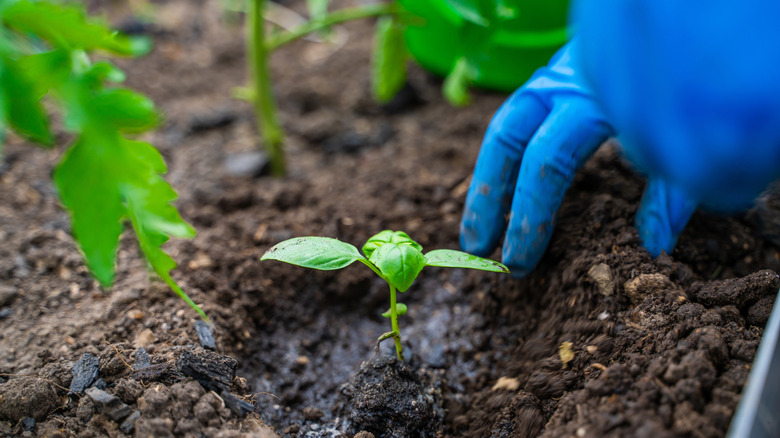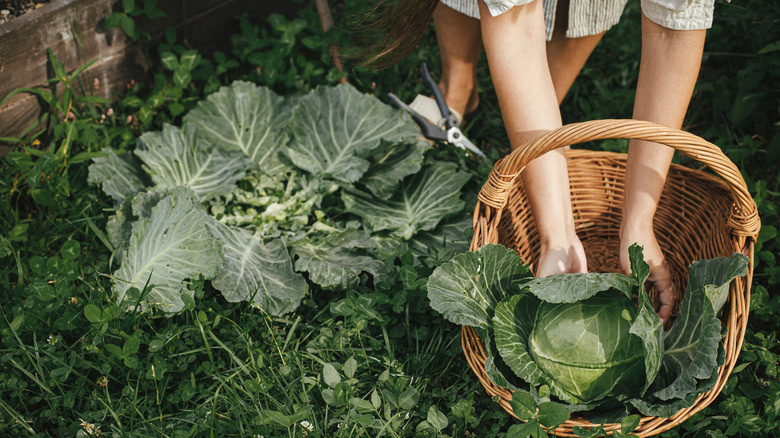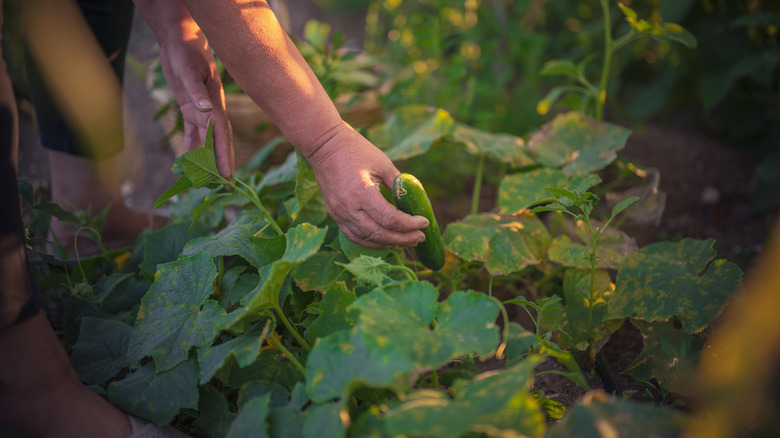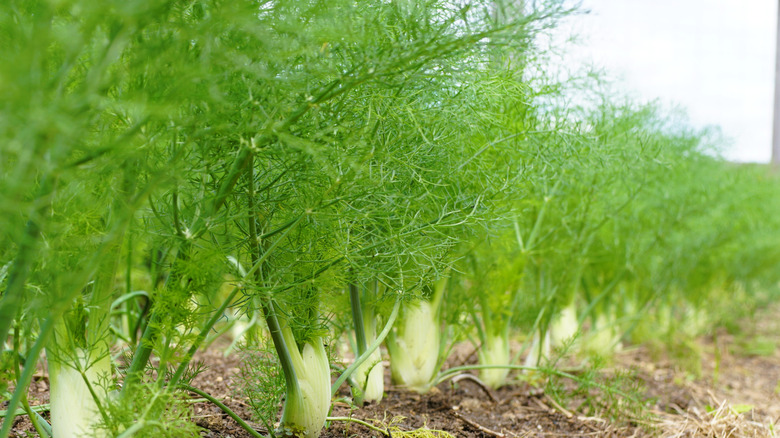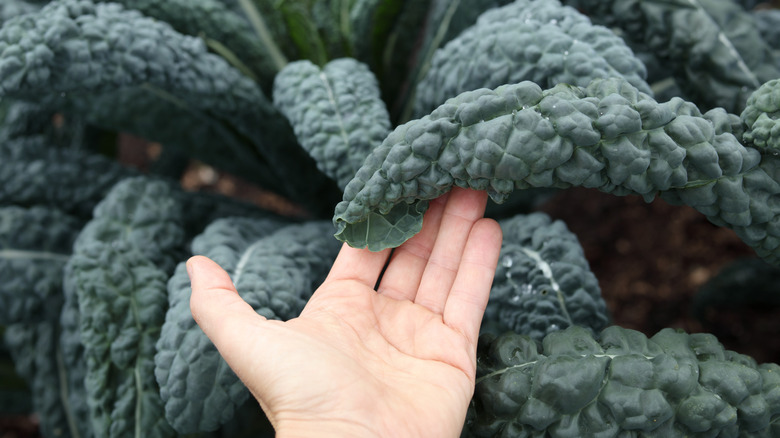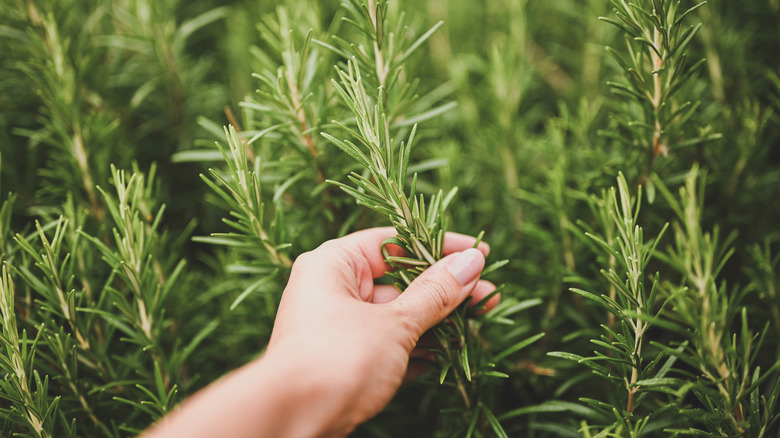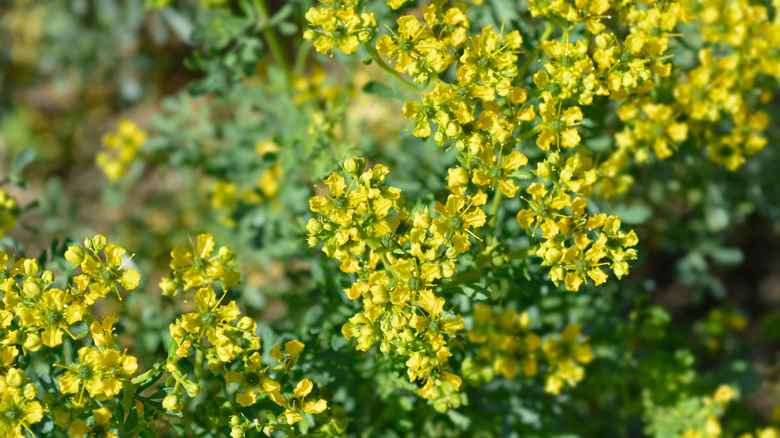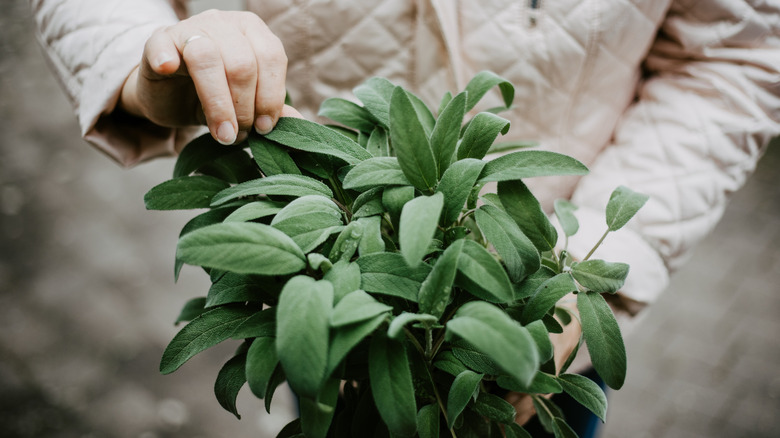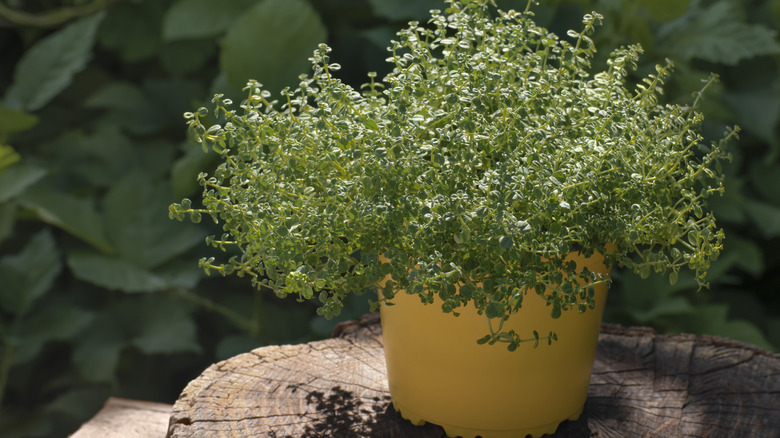8 Herbs And Veggies You Should Never Plant Near Basil In Your Garden
Basil (Ocimum basilicum) is rightfully listed among the herbs that are perfect for growing in your backyard garden. Its enduring popularity stems from its ease of growth coupled with the culinary, aromatic, and aesthetic benefits. Knowing how to grow and take care of basil plants is important for a successful harvest. As with other types of herbs, basil needs full sun and well-draining soil in order to thrive. Depending on the cultivar, basil can thrive in USDA Hardiness Zones 3 to 11.
Basil's other growing needs are much different than other herbs, though. In fact, it's a mistake to plant basil together with certain other common herbs, such as rosemary and thyme. For one, basil needs frequent water, especially if it's grown in containers. Besides non-compatible herbs, basil may not bode well with other types of plants due to differences in growing conditions, as well as the potential transfer of its peppery taste to nearby crops. While basil should absolutely be considered as a companion plant for tomatoes, petunias, parsley, and certain other plants, you should keep this herb in another part of your garden if you're planning to grow any of these crops.
Cabbage
Cabbage (Brassica oleracea) is said to benefit from having basil nearby because certain pests have a fondness for the herb. Basil might attract and draw away common cabbage pests such as cabbageworms, slugs, and snails, but this setup requires you to essentially sacrifice your basil plant. Another problem is that cabbage thrives in cool temperatures, while basil is not considered cold-hardy. If you do want both plants in your garden, consider planting basil in containers that may be moved around due to temperatures and pest problems. Cabbage is hardy in Zones 2 to 11.
Cucumbers
Cucumbers (Cucumis sativus) are among some of the most popular plants grown in home gardens, and they are considered hardy in USDA Zones 2 to 11. Whether you're growing them for pickling or slicing, though, it's worth knowing that other nearby plants may affect the taste of your cucumber crop. This is where basil may become problematic. As such, you may want to avoid planting aromatic herbs like basil near cucumber plants, and consider these cucumber companion plants you can rely on instead.
Fennel
Fennel (Foeniculum vulgare) is arguably gaining some traction in home gardens thanks to its aromatic, ornamental, and pollinator-attracting qualities. It does well in dry regions, and may be planted in Zones 4 to 9. This herb is not considered compatible with basil, though. Planting the two next to one another can stunt the overall growth of your basil plants because fennel releases allelopathic compounds that strip nearby plants of their nutrients. Additionally, fennel can be an aggressive spreader, so it's best to keep it in pots if you want to contain its growth.
Kale
Kale (Brassica oleracea) is becoming more commonplace in home gardens along with other leafy greens like spinach. Like cabbage, kale is considered a cool-season crop. As such, kale may not be the best choice of plant to grow near basil as the two require different growing conditions. If you want to plant kale in your garden, grow it separately from basil. Consider other common mistakes to avoid when growing kale in your garden, too. While kale is sometimes grown annually, biennial cultivars can do well throughout the winter in Zones 7 to 10.
Rosemary
Like basil, rosemary (Rosemarinus officinalis) can be planted for its aromatic, culinary, or ornamental benefits. Rosemary is also said to help deter certain pests from basil thanks to its aroma. The key, however, is to not plant these together in the same pots or directly side-by-side because of their varying water needs. Basil needs much more water than rosemary, so either overwatering or under-watering a garden bed or container with the two herbs will benefit one but damage the other. Rosemary is a perennial that's suitable for Zones 8 to 11.
Rue
Rue (Ruta graveolens) can present similar issues as fennel when growing basil nearby because of its allelopathic qualities. Rue is especially not ideal to have near basil if you use the latter for culinary purposes, as the bitterness of rue may affect basil leaf quality. With all this said, rue is not an herb you should plant next to basil in the garden. Keep these plants in separate containers within different areas of your garden for best results. Rue is considered hardy in Zones 4 to 10.
Sage
Sage (Salvia) is another herb that's popular in home gardens because of its ease of growth. However, there are still common mistakes everyone makes when growing sage you'll want to avoid. Sage is drought-tolerant and thrives in sunny and dry conditions. Like rosemary, sage does better with drier soil, and it doesn't need much watering. Such growing conditions may not bode well for basil if the two are planted together in the same container or garden bed. Plant sage in a separate area, and be aware that the plant is considered hardy in Zones 5 to 10.
Thyme
Thyme (Thymus) is yet another popular type of herb you might see along with rosemary, sage, and basil in home gardens. However, assuming thyme can be grown in the same container as basil may be deadly for both of these types of herbs. Like basil, thyme prefers full sun. But unlike basil, thyme needs dry soil and infrequent watering. When planted in well-draining soil, thyme is considered hardy in Zones 5 to 9. For the best results, review the mistakes gardeners commonly make when growing thyme.
